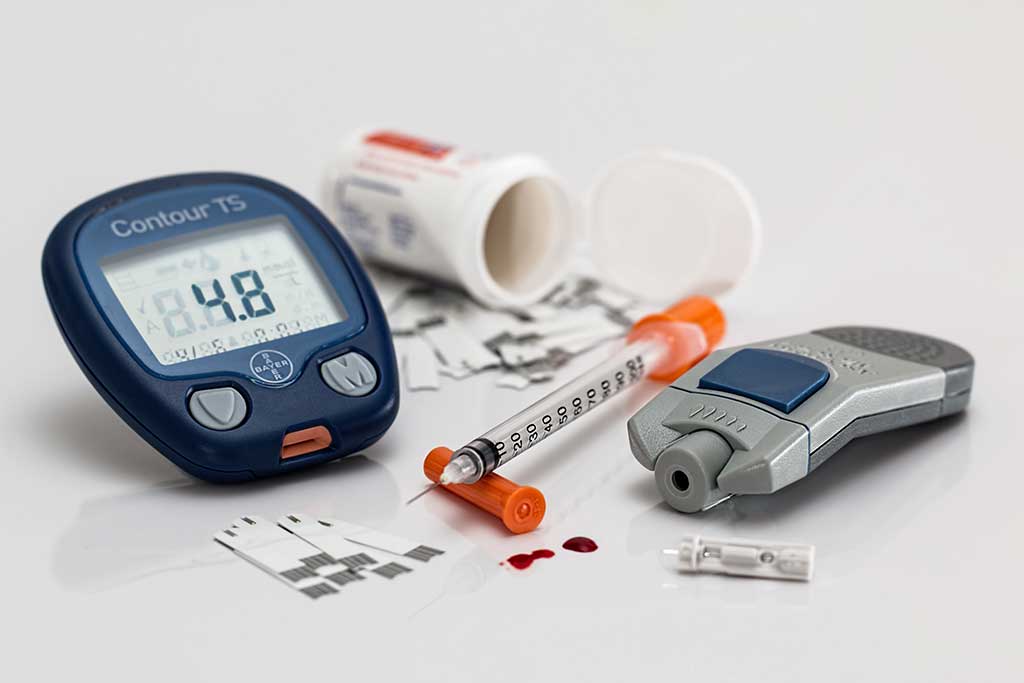Type 2 diabetes drug may help with nicotine withdrawal symptoms
Medication

"Type 2 diabetes drug could be used to treat nicotine withdrawal for people trying to quit smoking," reports the Mail Online.
"Type 2 diabetes drug could be used to treat nicotine withdrawal for people trying to quit smoking," reports the Mail Online.
This follows a study, carried out in mice, that explored whether the diabetes drug metformin could ease nicotine withdrawal symptoms. Prior research has shown nicotine activates a particular chemical pathway (AMP-activated protein kinase, or AMPK) in an area of the brain that controls memory and emotions.
Cutting out nicotine stops the activation of this enzyme, and this is thought to contribute to the nicotine withdrawal symptoms – such as anxiety, irritability and loss of concentration – most smokers experience when trying to quit.
As metformin has been shown to activate AMPK, the researchers wondered if this could compensate for the sudden withdrawal of nicotine. They found that when mice exposed to nicotine were injected with metformin before nicotine withdrawal, it reduced their anxiety, as measured by the amount they ate and the number of marbles they buried.
However, humans are not mice, and these early findings can't be applied to us. And as metformin is only licensed as a diabetes treatment, we don't know whether it would be safe or appropriate to use it for nicotine withdrawal symptoms.
Also, this study provided no evidence that metformin would be any better than the many well-established treatments to help people quit smoking, such as nicotine replacement therapy.
Where did the story come from?
The study was carried out by researchers at the University of Pennsylvania and Johns Hopkins University School of Medicine. No sources of funding were reported and the authors declared no conflict of interest. It was published in the peer-reviewed journal PNAS and is free to read online.
The Mail Online's report was accurate, making clear the research was in mice, not smokers, and that it's far too early to suggest metformin as a potential treatment to help people quit smoking.
What kind of research was this?
This was a laboratory study in mice that looked at whether the diabetes drug metformin could help nicotine withdrawal symptoms by acting on a particular enzyme in the brain.
Cigarette smoking is the largest preventable cause of disease, but nicotine withdrawal symptoms are one reason why people have difficulty stopping and relapses are common.
The researchers had previously found that long-term nicotine exposure activates an enzyme called AMPK, which is located in the hippocampus region of the brain and involved in memory and emotions.
Activation of the AMPK chemical pathway may contribute to the short-lived good feelings and memory and concentration boosts that follow smoking a cigarette. Removing nicotine would therefore stop this stimulation, which may contribute to the dulled mood, irritability, and impaired concentration and thinking ability seen with withdrawal.
The researchers wanted to see if controlling AMPK activity during nicotine withdrawal could ease these symptoms.
What did the research involve?
The researchers exposed mice to either a salt solution or a nicotine solution for 2 weeks. This was delivered via a surgically implanted mini pump. Nicotine exposure was then stopped and the withdrawal responses documented for the next few days.
The researchers then looked at what happened when metformin and another research chemical that activates AMPK, called AICAR, were given together before nicotine removal. Both drugs were given by injection.
The effects on the mice were examined using two tests: how long it took them to start eating some peanut butter chocolate chips placed in their cage and how many marbles they buried in their bedding. Lower anxiety was indicated by the mice being faster to return to feeding and burying fewer marbles.
What were the basic results?
The research demonstrated that administering metformin and AICAR reduced anxiety following nicotine withdrawal. The mice that received both drugs were quicker to return to feeding and buried fewer marbles than those that didn't receive the drugs before withdrawal.
The drugs had no effect on body weight, food consumption or blood sugar levels.
How did the researchers interpret the results?
They wrote: "Based on our findings demonstrating the efficacy of metformin in alleviating anxiety-like behaviour following nicotine withdrawal, we propose that AMPK activation in the brain via metformin can be repurposed as a novel pharmacotherapy for nicotine cessation."
They also suggested that metformin is worth exploring as a potential treatment in future clinical trials on smoking cessation, given it's a relatively safe drug with "the added benefit of normalising [blood glucose] control".
Conclusion
The researchers' conclusions are perhaps quite a leap at this stage.
The study does suggest that metformin may ease some nicotine withdrawal symptoms, due to its action on the AMPK chemical pathway in the brain. However, this has so far been tested only in mice, which were given nicotine via an implanted pump and injected with metformin – the drug is taken orally in humans – with withdrawal symptoms judged by how quickly they buried marbles and ate food.
While there are similarities in many of our biological pathways, humans are obviously not identical to mice, and these results can't be taken to mean that metformin would be a suitable or appropriate treatment to help people stop smoking.
Metformin is currently only licensed for the treatment of diabetes. It controls blood sugar, contributes to weight loss, and is a well-established and relatively safe drug when used properly. However, no drug is completely without side effects, so we don't know if it would be suitable to use for smoking cessation. Metformin needs to be used cautiously in people with impaired kidney or liver function, for example.
There's also no evidence that metformin would be any better than the current recommended smoking cessation treatments. A variety of evidence-based interventions – such as behavioural support, nicotine replacement therapy and bupropion (Zyban) – have already been demonstrated to be effective in helping people quit.
Contact your GP for advice on stop smoking services and treatments.






 Subscribe
Subscribe Ask the doctor
Ask the doctor Rate this article
Rate this article Find products
Find products






